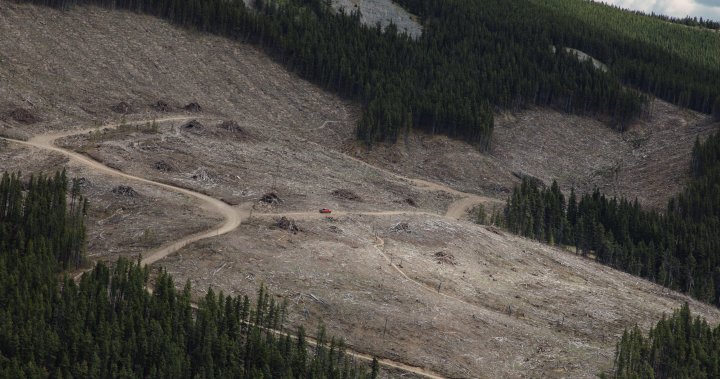Nearly a dozen environmental groups are calling on the federal government to expand its review of Canada’s forestry sector emissions. They believe that the current scope of the review does not address their concerns about underreporting of emissions. In an open letter signed by representatives from 11 environmental groups, including Nature Canada, the groups argue that the review must consider how forestry emissions are estimated in the first place. The letter also criticizes the government for undermining the credibility of the review’s scope. This comes after the federal environment commissioner issued a report recommending an independent review to examine how emission estimates related to logging are reported.
The commissioner’s report has been a focal point for environmental groups who have long criticized the forestry sector’s emission reporting practices. One key issue raised is that the government credits the sector with the emissions absorbed by trees that naturally regrow after wildfires. Michael Polanyi, a policy and campaign manager with Nature Canada, argues that this practice is illogical as it is a natural process with no human intervention involved. A study published earlier in the year in a peer-reviewed journal highlighted Canada’s unique reporting mechanism, which sets it apart from other industrialized nations. According to the study, Canada’s forestry sector contributes the equivalent of about 91 million tonnes of CO2 per year on average between 2005 and 2021, similar to the electricity and agriculture sectors. However, the government credits the sector with absorbing the equivalent of 4.7 million tonnes CO2 per year on average over the same period.
Polanyi points out that the discrepancy in reporting leads to distorted policy solutions because it portrays the forestry sector as a carbon sink and a climate solution. The environmental groups argue that this misrepresentation hinders the ability to create effective policies to address emissions in the forestry sector. The government has acknowledged the importance of an independent review of emission estimates in response to the commissioner’s report, but it has also stated that the underlying science is peer-reviewed. The call for an expanded review from the environmental groups aims to ensure that the forestry sector’s emissions are accurately reported and accounted for in climate policy decisions.
The debate around forestry sector emissions reporting highlights the complexities and challenges involved in accurately measuring and accounting for emissions in various industries. The discrepancies in reporting practices can have significant implications for climate policy and the effectiveness of efforts to reduce emissions. By calling for an expansion of the review scope, the environmental groups are advocating for more transparency and accuracy in how emissions related to logging are estimated and reported. This underscores the importance of robust and rigorous reporting mechanisms in addressing climate change and ensuring that different sectors are held accountable for their contributions to emissions.
As the federal government considers the recommendations put forth by the environmental groups, it will be crucial to address the concerns raised about underreporting and the misleading portrayal of the forestry sector’s emissions. By conducting an independent review that takes into account the concerns of environmental groups, the government can work towards more accurate and transparent reporting practices. This, in turn, can lead to the development of more effective policies and strategies to reduce emissions in the forestry sector and contribute to Canada’s overall climate goals. Ultimately, the outcome of the review will have far-reaching implications for how emissions are measured, reported, and addressed in the forestry industry, as well as in other sectors that contribute to Canada’s emissions profile.


